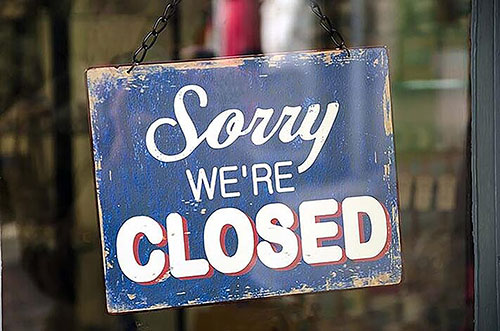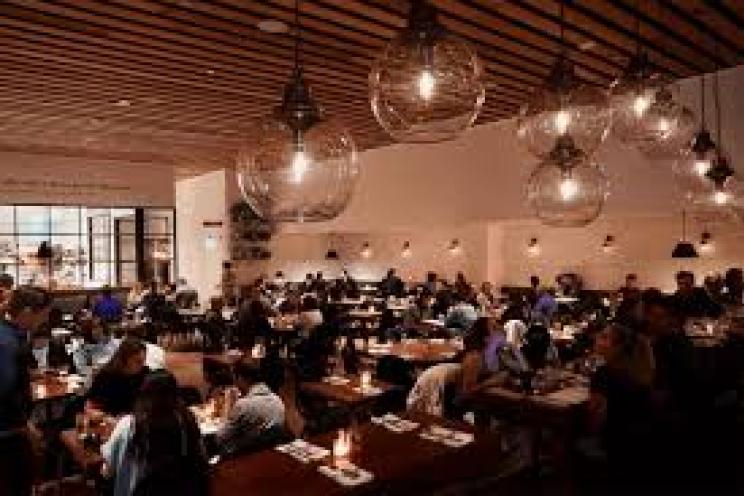
Why do restaurants fail their first year of business?
When you open a business, you usually aim for success and growth. While opening a restaurant seems like an easy business if you have a small amount of money and you’re looking for an investment.
Bear in mind though that Restaurant sector has a low entry barrier meaning that anyone with enough money to open a small location and equip it with kitchen equipment will be able to startup a quick service restaurant.
If it was that easy, then why do restaurants have a high failure rate? Older reports show that 60% of restaurants fail within the first year while the latest report from the National Restaurant Association shows a 30% failure rate in the first year.
Whether it is a 30% or a 60% rate, you should be looking for success once you plan to open a restaurant.
What’s the missing piece of the puzzle that shatters down your hopes of growing your business and expand your market and maybe open several branches?
There are several reasons for which the restaurant dream can fail you. The location used to be one of the main reasons for restaurant failure. But with increasing online orders and the rise of delivery platforms, does the location remain a valid reason for failure?
Mostly no. That’s why we witness a restaurant that fails in a certain location and when it is replaced by another restaurant at the same location, the business gets its way to success.
So, there must be other reasons that impact restaurant’s performance and cause their failure.
What are the reasons why restaurants may fail during their first year of opening?
Lack of planning
Insufficient planning, including inadequate market research, poor location selection, or a lack of a solid business plan, can contribute to the failure of a restaurant.
Without proper planning, it becomes challenging to understand the target market, customer preferences, and competition.
Planning should target all aspects of your business including menu planning in terms of prices and food, marketing strategy, ambiance of the restaurant, payment options, delivery strategy, staffing, and the technology that will be used.
Lack of experience and poor leadership
Inexperienced restaurateurs or a team without sufficient industry knowledge can make critical mistakes that lead to failure. Running a restaurant requires expertise in various areas, including culinary skills, management, marketing, and customer service.
Many restaurant owners start up their business in the sector chasing a dream without any prior expertise or knowledge in the hospitality sector that requires strong leadership skills to manage different personnel with different roles and be able to solve their problems for seamless operations.
You also need to know how many employees you need to avoid understaffing and adding more pressure on your employees which will eventually cause you a bad reputation.
Financial mismanagement and misallocation of resources
Poor financial management is a significant cause of restaurant failures. It involves underestimating costs, overestimating revenues, inadequate budgeting, and improper cash flow management. You need to have your basic restaurant operational costs taken care of so you don’t waste money inappropriately on unnecessary raw material for example.
Restaurants require substantial initial investment and ongoing operational expenses, and a failure to manage finances effectively can lead to insurmountable debts and closure.
When you write your business plan, it should include a financial plan that takes into consideration your capital allocation. You should stick to that plan.
Ineffective marketing and branding
You have a solid business plan and enough capital and you’re all set to start up the business. You still lack effective marketing strategies to create awareness, build a customer base, and generate repeat business.
Inadequate marketing efforts, weak branding, or an inability to reach the target audience will result in low customer traffic and revenues because you are not showing your customers why they should choose you among all the competition.
Start with a digital media strategy that promotes your brand, your offers, and enables you to create a bond with your customers and increases your reach.
Improve your SEO, use influencer marketing, and take professional and appealing pictures for your dishes. Create traffic through regular posting and audience engagement as well.
Operational issues
Poorly managed operations can lead to customer dissatisfaction and negative reviews. Issues such as inconsistent food quality, slow service, untrained staff, or insufficient attention to cleanliness and hygiene can quickly drive customers away.
Make sure you create standard operation procedures that explain different operational tasks to create consistency.
Competition and changing trends
Restaurants face fierce competition, and if you fail to differentiate yourself or keep up with changing consumer trends, you will struggle to attract customers. Evolving dietary preferences, shifts in eating habits, or new restaurant openings in the area will affect your restaurant's success.
Lack of technology and reporting
You cannot exclude technology from your business plan because it affects all areas of your operations from customer relation management, online sales channels, kitchen management, menu engineering, to reservation management and inventory management.
Reporting is also another aspect of a reliable POS that allows you to generate reports related to sales, menu items and categories’ profitability, cost breakdown and much more.
These reports enable you to spot problems and make insightful decisions to correct any situation.
It's important to note that while these factors contribute to the failure of some restaurants, many factors can also lead to success for increasing the chances of survival and long-term success in the competitive restaurant sector.





